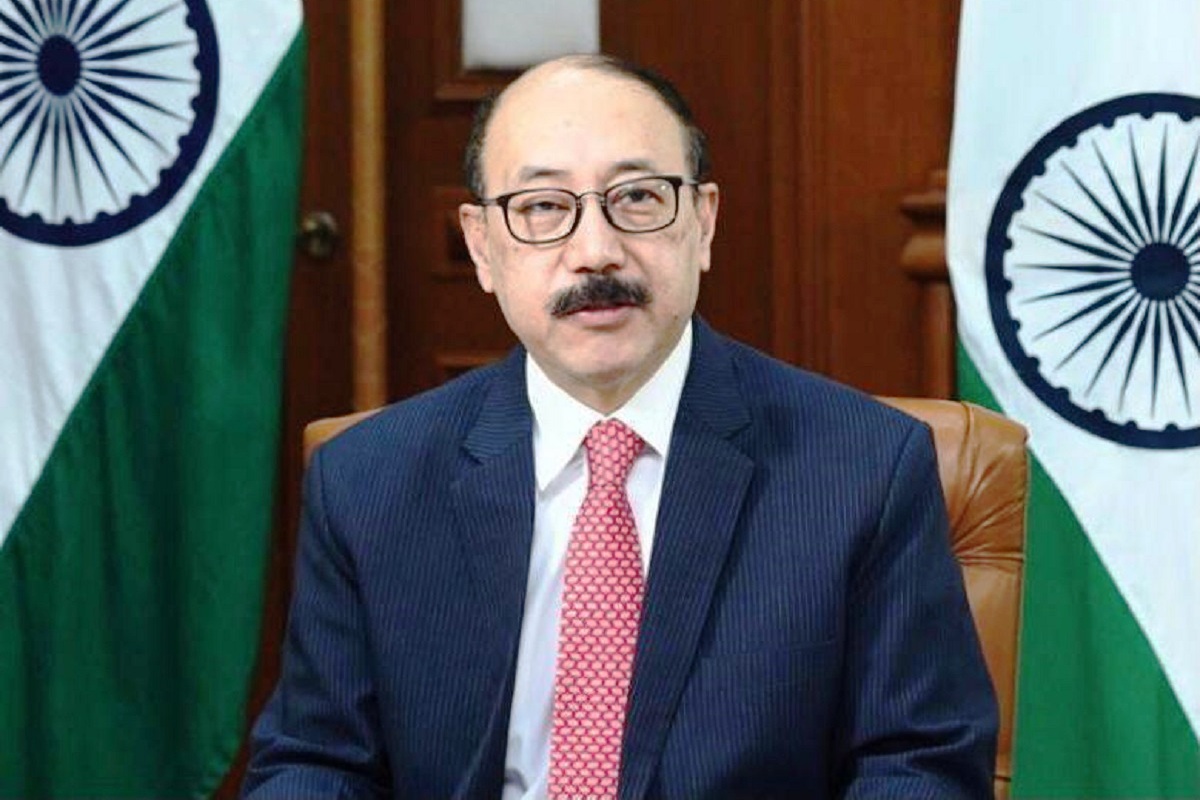India needs at least 1 mn fast chargers to adopt EVs by 2030: Amitabh Kant
The G20 sherpa and former NITI Aayog CEO, Amitabh Kant has said that India needs at least one million fast chargers to adopt electric vehicles (EVs) by 2030.
In the podcast with Smita Prakash, Editor-in-Chief of ANI, Shringla said, “PM Modi is probably one of the most sought-after leaders of the world for any global decisions making that you have whether it’s in climate change, whether it is an issue that is political in nature or economical in nature, he is always called in.

[File Photo]
Prime Minister Narendra Modi is one of the most sought-after world leaders in any global decision-making, Chief Coordinator for G20 Presidency Harsh Vardhan Shringla said.
In the podcast with Smita Prakash, Editor-in-Chief of ANI, Shringla said, “PM Modi is probably one of the most sought-after leaders of the world for any global decisions making that you have whether it’s in climate change, whether it is an issue that is political in nature or economical in nature, he is always called in. He is also called in all the G7 summits.
We are part of BRICS, SCO, I2U2, and Quad… We have got these mechanisms that enable us to engage with organizations or groups of countries across the world.” Shringla also said that PM Modi’s chemistry with world leaders has helped in foreign policy and one can see the impact in the world leaders’ (Family) pictures.
Advertisement
Talking about the India-China relationship, the Chief Coordinator of G20 said that since the Doklam crisis, a number of discussions were carried out to solve the issue but never reached any diplomatic conclusions.
Shringla called the issue with China “One of the biggest challenges in my career”. He also said that India cannot expect a normal diplomatic relationship on territorial issues.
Replying to a question about trade relations despite the territorial issue, Shringla said, “Trade is an essential part of the give and take, the exchange that you have with any country where China is a very large neighbour and you know your industry also requires raw materials that do come from China whether it is Pharmaceuticals or any other raw material and you also export a number of items to that country.”
He also said that China does trade with Japan and Taiwan even though they also have the same territorial issues and trade is not being used as a weapon.
Talking about G20’s importance, Shringla said, “G20 is important because of its membership. It includes countries that are some of the largest economies of the world and all the G7 member countries are members.
You have all the permanent members of the UNSC as part of G20 membership. You also have all the international organizations that actually you know provide the international governance of today’s int. order the UN the IMF World Bank OCEd Financial stability board all of these organizations and some of the regional organizations like the African Union are all part of G20 meetings.”
“So, when G20 takes decisions those are representative decisions that are cut across the board… When we say UNSC is not representative of today’s reality. We must see G20 to see what sort of representation today actually can matter,” he added.
He said that India is conducting G-20 meetings in 56 locations which is a new record and also added that it is very difficult to match you have to have a country of the size and diversity of India also the capacity to hold the meetings in so many different parts of the country.
While responding to a query about problems during India’s G20 presidency, Shringla said, “I would say that is an especially difficult period when you look at it from the global perspective. You have the greatest shock to the international system in the form of the Covid-19 pandemic and you are barely recovering from the pandemic when you have the Ukraine conflict with its attendant impact on food and energy security.”
“You have high inflation, low growth and of course indebtedness of many developing countries. So it is in this context that you know the world is looking for solutions and looking to those countries or those groupings that can lead at the time of this challenging crisis and in many senses I think this is India’s moment because at the end of the day if you look at the global growth has slowed from 6 per cent in 2021 to 3.21 per cent in 2022 and 2.7 per cent is projected in 2023. Some countries are even reaching to recession period while India on the other hand is the fastest growing large economy in the world,” he added.
Responding to the question of whether India is the “problem solver” or not, Shringla said, “There are 2 factors that distinguish our foreign policy under PM Modi and what was there earlier and from that of other countries. I think if you talk about the shift in the way a foreign policy is conducted in the way India is regarded in the rest of the world to my mind there are two factors that are absolutely responsible one is your domestic strengths.”
Advertisement